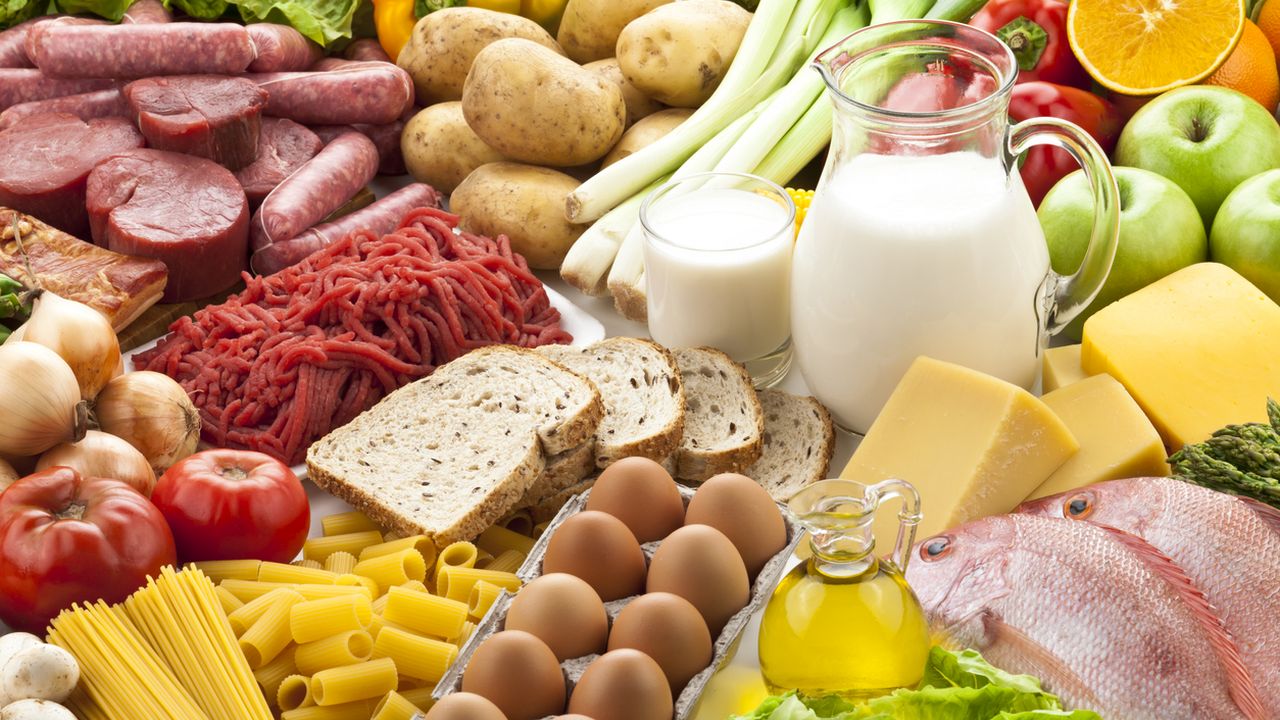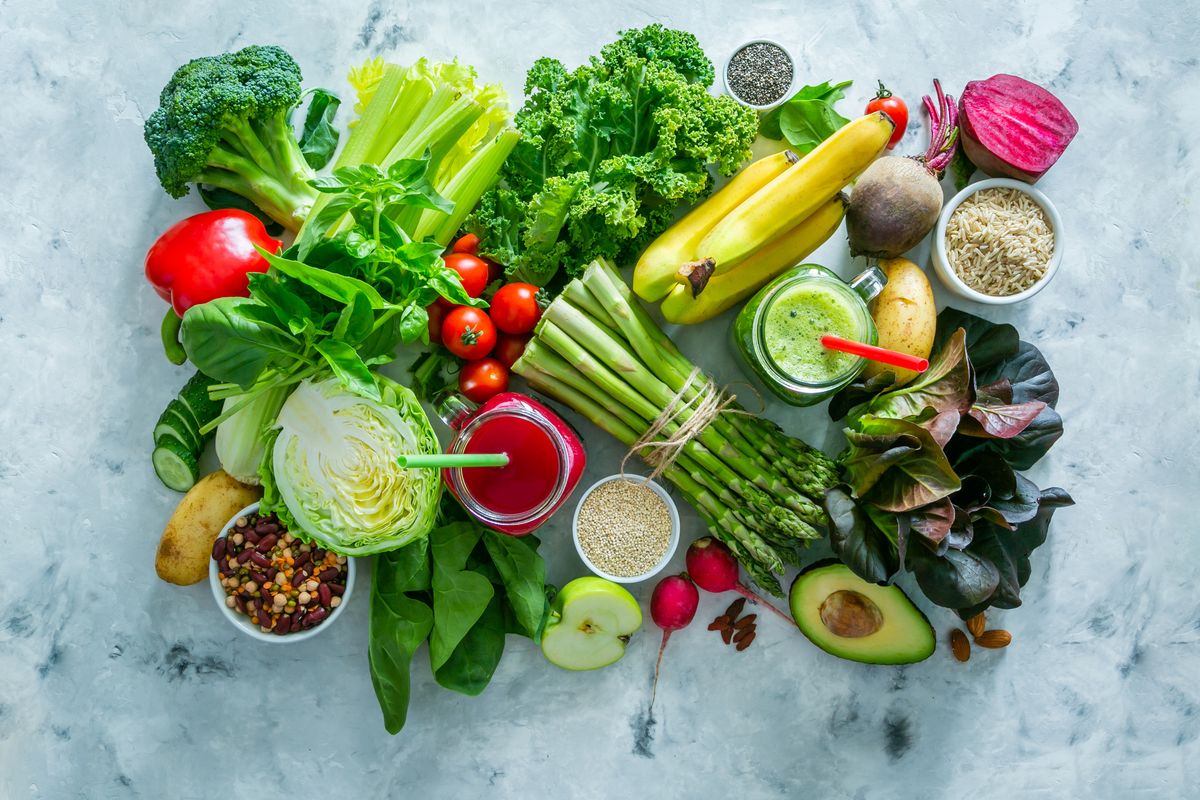Exercise Daily – For athletes, nutrition is the cornerstone of performance, recovery, and overall well-being. Balancing intense training schedules, specific performance goals, and maintaining a nutritious diet can often feel overwhelming. This is where meal prepping becomes invaluable, offering a streamlined approach to ensuring that your body receives the essential nutrients without the stress of daily cooking. Effective meal prep can significantly impact your athletic journey, whether you’re a professional athlete, a weekend warrior, or someone striving to enhance their physical performance. In this comprehensive guide, we’ll delve deep into the best meal prep strategies tailored for athletes, helping you fuel your body right and achieve your peak performance.
Why Meal Prep is Essential for Athletes
Athletes operate under rigorous schedules that demand consistent energy, efficient recovery, and optimal health. Meal prepping serves as a foundational practice to meet these demands by providing:
Consistent Nutrient Intake
Regularly consuming balanced meals ensures that your body maintains optimal levels of essential nutrients. This consistency supports muscle growth, energy production, and overall bodily functions crucial for athletic performance.
Time Management
Athletes often find themselves pressed for time with training sessions, competitions, and possibly other responsibilities. Meal prepping allows you to allocate specific times for cooking, thereby reducing daily stress and freeing up more time for training and recovery.
Financial Efficiency
Buying ingredients in bulk and preparing meals in advance can lead to significant cost savings. It also minimizes the temptation to opt for expensive, less nutritious convenience foods when time is limited.
Enhanced Dietary Control
By preparing your own meals, you have complete control over the ingredients, portion sizes, and nutritional content. This ensures that your diet aligns perfectly with your athletic goals and dietary requirements.
Reduced Risk of Poor Food Choices
When you’re hungry and pressed for time, reaching for unhealthy options can easily derail your nutrition plan. Having prepped meals and snacks readily available minimizes this risk, keeping you on track toward your goals.
Improved Hydration and Supplementation
Meal prepping isn’t just about solid foods. It also provides an opportunity to plan and prepare hydration strategies and the incorporation of supplements, ensuring that you’re adequately fueled and hydrated for training and competitions.

Benefits of Meal Prep for Athletic Performance
Meal prepping offers a multitude of benefits that directly translate to enhanced athletic performance:
Optimized Energy Levels
Balanced meals rich in complex carbohydrates, lean proteins, and healthy fats provide sustained daily energy. This ensures that you have the necessary fuel for both training and recovery.
Enhanced Muscle Recovery and Growth
Adequate protein intake is essential for muscle repair and growth. Meal prepping allows you to ensure that each meal contains sufficient protein sources to support these processes, reducing the risk of injury and enhancing performance.
Improved Immune Function
A well-balanced diet rich in vitamins, minerals, and antioxidants strengthens the immune system, helping athletes stay healthy and maintain consistent training schedules without interruptions caused by illness.
Mental Clarity and Focus
Proper nutrition supports brain health, improving concentration, decision-making, and mental resilience, invaluable qualities during training and competition.
Consistent Weight Management
For athletes who need to maintain or achieve a specific weight class or body composition, meal prepping provides precise control over calorie intake and macronutrient distribution, facilitating effective weight management.
Reduced Inflammation and Enhanced Recovery
Incorporating anti-inflammatory foods through meal prep can aid in quicker recovery times, reduce muscle soreness, and enhance overall performance by keeping the body in optimal condition.
Getting Started with Athlete Meal Prep
Embarking on a meal prep journey tailored for athletic performance involves understanding your unique nutritional needs, planning meticulously, and implementing efficient strategies. Here’s how to get started:
Understanding Your Nutrition Needs
Athletes have distinct nutritional requirements compared to non-athletes. Factors such as the type of sport, training intensity, duration, and individual metabolism influence these needs.
Macronutrient Balance for Athletes
Balancing macronutrients—proteins, carbohydrates, and fats—is crucial for athletic performance:
- Proteins: Essential for muscle repair and growth. Aim for lean sources like chicken, turkey, fish, eggs, and plant-based options such as tofu and legumes.
- Carbohydrates: The primary energy source for high-intensity activities. Focus on complex carbs like whole grains, sweet potatoes, and vegetables.
- Fats: Important for hormone production and joint health. Incorporate healthy fats from avocados, nuts, seeds, and olive oil.
A general guideline is to consume:
- 55-60% Carbohydrates: To fuel training and replenish glycogen stores.
- 15-20% Proteins: To support muscle repair and growth.
- 20-30% Fats: For sustained energy and overall health.
Micronutrients and Hydration
Beyond macronutrients, vitamins and minerals are vital in energy production, muscle contraction, and overall health. Incorporate a variety of colorful vegetables and fruits to ensure a broad spectrum of micronutrients. Additionally, maintaining proper hydration is paramount. Aim to drink at least 3-4 liters of water daily, adjusting based on training intensity and environmental conditions.
Importance of Protein, Carbs, and Fats
Each macronutrient serves a specific function:
- Protein:
- Role: Muscle repair, enzyme production, hormone regulation.
- Sources: Lean meats, fish, dairy, legumes, and plant-based proteins.
- Recommendation: Consume 1.2 to 2.0 grams of protein per kilogram of body weight, depending on training intensity.
- Carbohydrates:
- Role: Primary energy source, glycogen storage.
- Sources: Whole grains, fruits, vegetables, and legumes.
- Recommendation: Athletes should aim for 5-7 grams of carbohydrates per kilogram of body weight for moderate training and up to 10 grams for intense training.
- Fats:
- Role: Energy storage, hormone production, nutrient absorption.
- Sources: Avocados, nuts, seeds, olive oil, and fatty fish.
- Recommendation: Fats should constitute about 20-30% of total daily calories.

Planning Meals Based on Your Workout Schedule
Your meal plan should be aligned with your training schedule to maximize performance and recovery:
- Pre-Workout Nutrition:
- Focus: Carbohydrates and moderate protein to provide energy.
- Examples: Oatmeal with banana and a scoop of protein powder or a turkey sandwich on whole-grain bread.
- Post-Workout Nutrition:
- Focus: Proteins and carbohydrates to aid muscle recovery and replenish glycogen stores.
- Examples: Grilled chicken with sweet potatoes and steamed vegetables or a smoothie with protein powder, fruits, and spinach.
- Rest Days:
- Focus: Balanced meals with slightly reduced carbohydrate intake and increased emphasis on proteins and healthy fats to support muscle repair.
- Examples: Quinoa salad with mixed vegetables and tofu or salmon with avocado and brown rice.
Top Meal Prep Tips for Athletes
Implementing an effective meal prep routine requires strategic planning and execution. Here are some top tips to ensure your meal prep is efficient and aligns with your athletic goals:
Make a Meal Plan
Planning is the backbone of successful meal prepping. Here’s how to create an effective meal plan:
- Assess Your Weekly Schedule: Identify training days, rest days, and any other commitments that might affect your meal times.
- Determine Your Caloric Needs: Use a calorie calculator or consult with a nutritionist to estimate your daily caloric requirements based on your activity level.
- Choose Balanced Recipes: Select recipes that provide a good balance of macronutrients and include a variety of food groups.
- Create a Shopping List: Based on your meal plan, make a comprehensive shopping list to ensure you have all the necessary ingredients, reducing the risk of last-minute, less nutritious choices.
Batch Cooking Basics
Batch cooking involves preparing large quantities of food in one cooking session, which can be divided into individual portions for the week. This method saves time and ensures you have ready-to-eat meals. Here’s how to get started:
- Select Recipes That Store Well: Choose dishes like stews, casseroles, grilled proteins, and roasted vegetables that retain their flavor and texture over several days.
- Use Versatile Ingredients: Ingredients like quinoa, brown rice, and roasted vegetables can be used in multiple dishes, providing variety throughout the week.
- Invest in Quality Cookware: Tools like slow cookers, Instant Pots, and large baking sheets can make batch cooking more efficient and enjoyable.
- Portion Control: Divide cooked meals into individual containers, making it easy to grab a portion without measuring each time.
Choosing Quality Ingredients
The foundation of any nutritious meal prep is high-quality ingredients. Prioritize:
- Fresh Produce: Opt for seasonal vegetables and fruits to ensure maximum nutrient content and flavor.
- Lean Proteins: Select lean cuts of meat, fresh fish, and plant-based proteins to support muscle repair without excess fat.
- Whole Grains: Choose whole grains like brown rice, quinoa, and whole-wheat pasta over refined grains for sustained energy.
- Healthy Fats: Incorporate sources of healthy fats such as avocados, nuts, seeds, and olive oil to support overall health and performance.
Efficient Storage Solutions
Proper storage is crucial to maintain the freshness and nutritional integrity of your prepped meals:
- Use Airtight Containers: Invest in high-quality, airtight containers to prevent spoilage and maintain freshness.
- Labeling: Clearly label containers with the meal name and date to keep track of freshness and plan your meals accordingly.
- Freezing: For meals prepared in bulk, freezing portions can extend their shelf life. Ensure the meals are freezer-safe and easily reheated without losing quality.
- Organization: Arrange your meals in the refrigerator and freezer systematically, making it easy to access and manage your meal supply.

Nutritional Guidance and When to Consult a Dietitian
While meal prepping provides a solid foundation for athletic nutrition, personalized guidance can optimize your diet further. Here’s why and when to seek professional advice:
Importance of Consulting with a Dietitian
1. Personalized Nutrition Plans
- Benefit: A registered dietitian can create a meal plan tailored to your specific needs, considering your sport, training intensity, body composition goals, and any dietary restrictions.
2. Addressing Nutritional Deficiencies
- Benefit: Dietitians can identify and address any gaps in your nutrition, ensuring that you receive all necessary vitamins and minerals to support overall health and performance.
3. Optimizing Performance
- Benefit: Through careful analysis of your diet and training regimen, dietitians can suggest modifications that enhance your energy levels, endurance, and recovery times.
4. Managing Weight and Body Composition
- Benefit: Whether you need to gain muscle, lose fat, or maintain a specific weight class, dietitians provide strategies to achieve these goals healthily and sustainably.
5. Specialized Diets
- Benefit: For athletes following specific diets such as vegan, vegetarian, gluten-free, or ketogenic, dietitians ensure that all nutritional needs are met without compromising performance.
Personalized Meal Planning Tips
1. Assessing Individual Needs
- Action: Schedule a consultation to evaluate your current diet, training schedule, and performance goals. This assessment forms the basis of a personalized meal plan.
2. Incorporating Flexibility
- Action: A dietitian can help you build flexibility into your meal prep routine, allowing for adjustments based on training cycles, competitions, and lifestyle changes.
3. Monitoring Progress
- Action: Regular check-ins with a dietitian can help track your progress, making necessary adjustments to your meal plan to ensure continuous improvement and goal attainment.
4. Education and Empowerment
- Action: Dietitians educate you on making informed food choices, understanding nutritional labels, and developing healthy eating habits beyond meal prep.
5. Addressing Challenges
- Action: Whether dealing with injuries, illnesses, or changes in training intensity, a dietitian provides strategies to adapt your nutrition accordingly, ensuring you stay on track despite challenges.

Conclusion
Meal prepping is a pivotal strategy for athletes aiming to optimize their performance, facilitate recovery, and maintain overall health. By dedicating time to prepare balanced, nutrient-dense meals, you ensure your body is consistently fueled for the demands of training and competition. Embrace the meal prep routine by planning meticulously, incorporating variety, and utilizing the right tools. Consistency is key; each prepared meal is a step closer to achieving your athletic aspirations. Stay committed and nourished, and watch as your performance reaches new heights.
FAQs – Meal Prep Tips for Athletes: Fueling Your Body Right
Q: What are the best protein sources for athlete meal prep?
A: Lean meats such as chicken, turkey, and lean cuts of beef are excellent protein sources. Fish like salmon and tuna provide protein and essential omega-3 fatty acids. Consider tofu, tempeh, lentils, chickpeas, and Greek yogurt for plant-based options. Incorporating various sources ensures a comprehensive amino acid profile necessary for muscle repair and growth.
Q: How can I avoid getting bored with my meal prep?
A: To keep your meal prep exciting, rotate different recipes weekly, experiment with new spices and herbs, and incorporate a variety of protein sources and vegetables. Exploring international cuisines can also add diversity to your meals. Changing cooking methods—such as grilling, roasting, steaming, or sautéing; can bring new textures and flavors to familiar ingredients.
Q: How long can prepped meals be stored?
A: Most prepped meals can be safely stored in the refrigerator for 3–5 days. If you plan to keep meals longer, freezing them is a viable option, with most dishes lasting up to a month. It’s essential to store meals in airtight containers and label them with preparation dates to keep track of their freshness. Always reheat meals thoroughly before consumption to ensure food safety.
Q: Are there meal prep options for plant-based athletes?
A: Absolutely! Plant-based athletes can create balanced meal preps by incorporating a variety of legumes, whole grains, nuts, seeds, and plant-based proteins like tofu and tempeh. Examples include quinoa and black bean salads, lentil stews, chickpea and vegetable stir-fries, and smoothie bowls with plant-based protein powders. Ensuring a mix of protein sources helps meet amino acid requirements for muscle repair and growth.
Q: Can I meal prep without cooking every meal in advance?
A: Yes! Meal prepping doesn’t always require cooking entire meals in advance. Simple strategies include pre-cutting vegetables, portioning snacks like nuts and dried fruits, preparing protein sources (like grilled chicken or boiled eggs), and assembling ingredients for quick assembly during the week. This approach allows for greater flexibility and can save time while providing meal-prepping benefits.
Q: How do I ensure my meal prep meets my specific sport’s nutritional demands?
A: Different sports have varying nutritional demands. Endurance athletes may require more carbohydrates for sustained energy, while strength athletes might focus on higher protein intake for muscle growth. Consulting with a sports dietitian can help tailor your meal prep to meet the specific needs of your sport, ensuring optimal performance and recovery.




